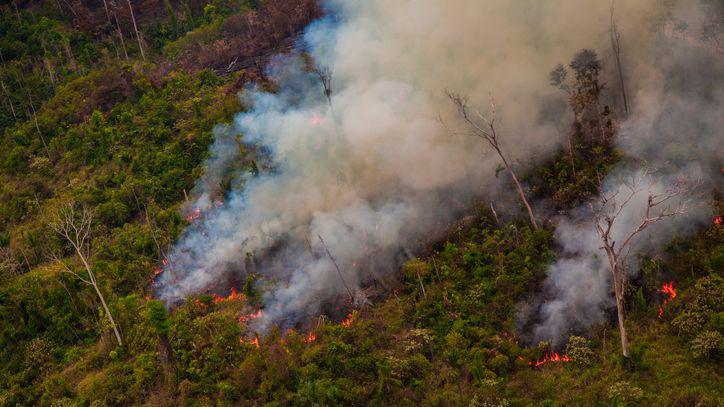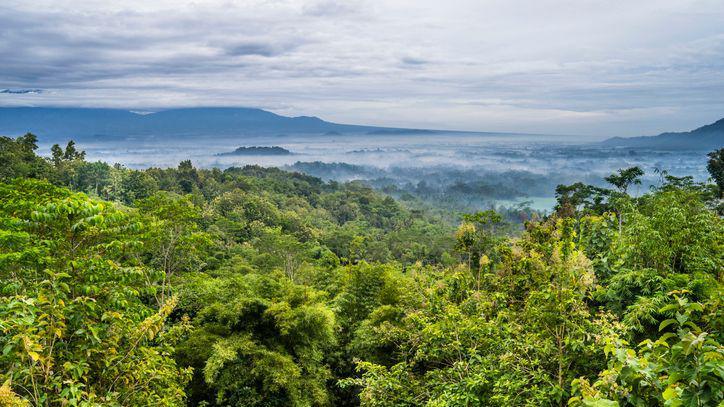Calls for more protection for tropical forests

- Published
There are calls for the next climate change conference, COP30, to focus on saving tropical forests.
It comes after a new report shows they disappeared faster than ever last year.
However, the study also highlighted how governments and communities are finding ways to help these environments and make a positive difference.
In South East Asia, area of forest loss slowed down in countries such as Indonesia and Malaysia, thanks to organisations working together.
More environmental news
Climate change: What is it?
- Published20 January 2020
Powered by volcanoes: Dominica boosts clean energy
- Published15 May
UK's loudest toad making 'wonderful comeback'
- Published15 May
What did scientists find?

Tropical rainforests, like the Amazon, are sometimes called the 'lungs of the planet' because they absorb and store carbon dioxide - a greenhouse gas which scientists think help cause rising global temperatures.
They also produce oxygen, which living creatures animals need for survival.
As a result, rainforests are seen as one of the best tools against climate change.
But when researchers looked at satellite data they found that the world's tropical forests disappeared faster than ever recorded last year.
Their report estimates that an area the size of eighteen football pitches were lost every minute.
Fires were the main cause, overtaking land being cleared for farming, for the first time.
Record breaking heat levels also led to more drought as well as the increased risk of fire.
Experts say that burning forests release rather than store carbon dioxide, a greenhouse gas that plays a major role in global warming.
How are countries making a positive difference?

The research also showed positive news from South East Asia.
Here, countries such as Indonesia and Malaysia have managed to reduce forest loss, despite difficult conditions.
Elizabeth Goldman, co-director of the Global Forest Watch project, explained that this was the result of an effort by governments and communities working together to enforce "no burning" laws.
Other countries, including Brazil, have seen success in the past with similar approaches.
The researchers also agree that this year's UN climate summit COP30 - which is being hosted in the Amazon in Brazil - will be important for sharing and promoting forest protection schemes.
One idea being worked on is looking at rewarding those countries which maintain tropical forests financially, to help them keep their forests standing, rather than chopping them down.
